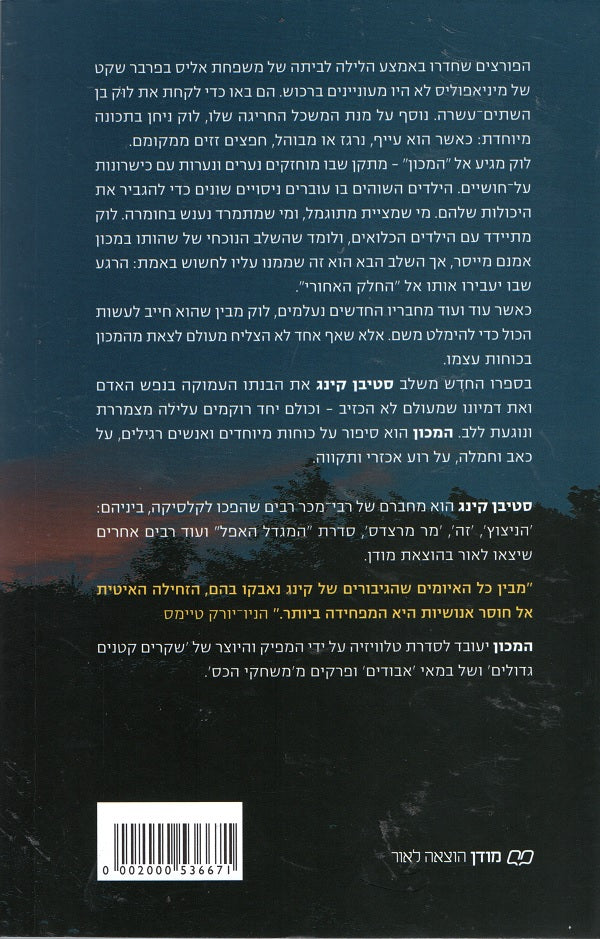
They know, however, that this is an (un)likely story.

The reason for th eir detention is unclear to the children, who are promised they will be returned to their families in the end. No one has escaped the Institute and its director, the satisfyingly evil Mrs Sigsby, believes the inmates should regard themselves as true American heroes. If they aren't, well, this is a horror story of sorts. If they are meekly compliant, they earn tokens for vending machines. All the other residents are children with telekinetic or telepathic abilities and they are subjected to various appalling experiments. The Institute is the setting for much of the plot – a strange complex run by an even stranger government-backed organisation that has abducted Luke Ellis, 12, and executes his parents along the way, just to emphasise their badness. As always, there's plenty of evidence that King remains a master storyteller as he expertly fashions a compelling, thrilling narrative, but whether it actually does much more than gently intrigue readers in the way you'd expect a King novel to do is a moot point. Ĭertainly, on first inspection, the tropes of The Institute – a child with telekinetic powers, small-town America, malevolently powerful forces – are comfortingly familiar and, at the same time, slightly old hat.

Whether that means there is the same commitment to quality control, to breaking new ground, to telling the kinds of stories that are relevant in 2019, is up for debate. With the best will in the world, King is not in his purple patch of the 1970s, a decade during which he brought us Carrie, Salem's Lot and The Shining. There's more than a hint of Stranger Things throughout the book, although admittedly that in turn was influenced by King's bibliography


 0 kommentar(er)
0 kommentar(er)
